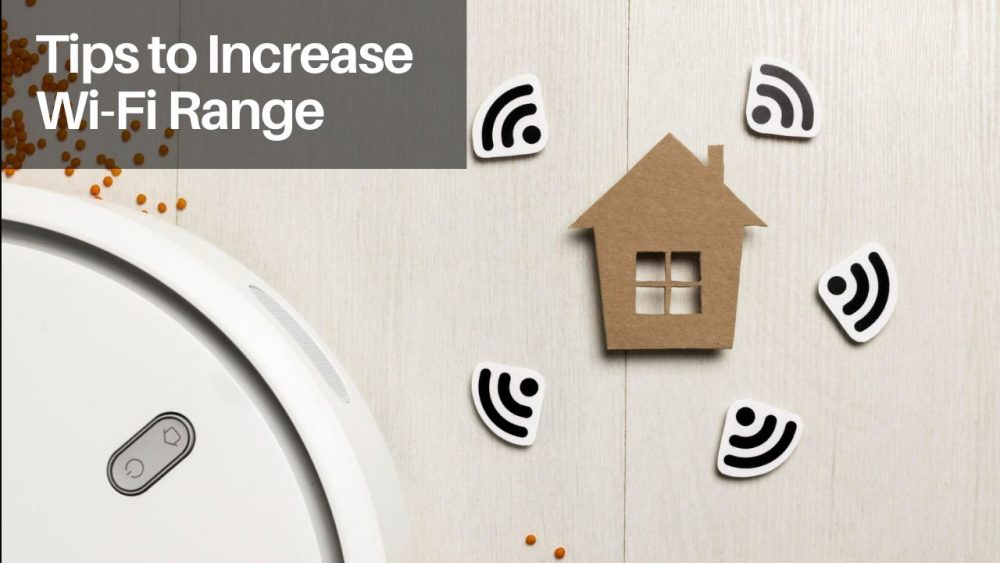
Understanding Wi-Fi Range
Before delving into the ways of enhancing Wi-Fi range, it’s essential to understand how Wi-Fi signals work and what factors can hinder their reach. Wi-Fi signals operate using radio waves, and they can be affected by various obstacles, interference, and distance from the router.
Factors Affecting Wi-Fi Range
- Physical Obstacles
- Interference from Electronic Devices
- Router Placement
- Antenna Orientation
Tips to Increase Wi-Fi Range
Now that we know the factors that can impact WiFi range, let’s explore some practical steps to extend your WiFi coverage.
1. Upgrade Your Router
The first step to improving your WiFi range is to invest in a high-quality router. Older routers may not have the latest technology to provide strong signals over longer distances. Look for routers with multiple antennas and support for the latest Wi-Fi standards.
2. Find the Optimal Router Placement
The placement of your router plays a significant role in determining the range of your Wi-Fi signals.
Follow these guidelines for optimal router placement:
- Place the router in a central location in your home.
- Avoid placing the router near physical barriers like walls and metal objects.
- Elevate the router to a higher position to reduce obstructions.
3. Use Wi-Fi Range Extenders
Wi-Fi range extenders, also known as Wi-Fi boosters or repeaters, are devices that amplify your existing Wi-Fi signal and extend its coverage. These devices can help eliminate dead zones and provide a stronger connection to areas far from the router.
4. Update Firmware and Drivers
Regularly check for firmware updates for your router and update it when available. Similarly, ensure that your devices’ network drivers are up to date, as outdated firmware and drivers can affect the overall performance of your Wi-Fi connection.
5. Adjust Router Antennas
If your router has adjustable antennas, try experimenting with different orientations. Sometimes, positioning the antennas vertically or horizontally can make a significant difference in the signal strength and coverage.
6. Control Bandwidth-Hungry Applications
Bandwidth-intensive applications like video streaming and large downloads can put a strain on your Wi-Fi network. Limiting the usage of such applications when you require a stable connection can help in maintaining a better Wi-Fi range.
7. Use Quality of Service (QoS) Settings
Many modern routers come with QoS settings that allow you to prioritize specific devices or applications for smoother and uninterrupted connections. Utilize QoS to ensure essential tasks get the bandwidth they need.
8. Secure Your Wi-Fi Network
Protecting your Wi-Fi network with a strong password is about security and ensuring that no unauthorized users are hogging your bandwidth, which can affect your Wi-Fi range.
9. Switch to a Different Channel
Routers can operate on different channels, and nearby routers may interfere with yours. Use tools to detect which channels are congested and switch your router to a less crowded channel for improved performance.
10. Invest in Mesh Wi-Fi Systems
Mesh Wi-Fi systems are a more advanced solution for extending Wi-Fi coverage in large homes. They consist of multiple nodes that work together to create a seamless and powerful network.
Conclusion
In conclusion, having a strong Wi-Fi range is crucial for an enjoyable internet experience. By following the tips and techniques mentioned in this article, you can enhance your Wi-Fi range and eliminate dead zones.
Remember to invest in a quality router, find the best placement, and consider using Wi-Fi extenders or mesh systems if needed. With a robust Wi-Fi connection, you can make the most out of your online activities without the frustration of dropped signals.
FAQs
How can I check my Wi-Fi signal strength?
You can check your Wi-Fi signal strength on various devices. On most smartphones and laptops, there is a Wi-Fi icon that displays the signal bars. The more bars you see, the stronger the signal. Additionally, some routers have indicator lights that show the signal strength. For a more detailed analysis, you can use Wi-Fi analyzer apps on your smartphone or computer, which provide information on signal strength and channel congestion.
Can I increase my Wi-Fi range without buying a new router?
Yes, you can improve your Wi-Fi range without buying a new router. Some of the methods mentioned in the article can help extend your Wi-Fi coverage, such as finding the optimal router placement, using Wi-Fi range extenders, adjusting router antennas, and controlling bandwidth usage. These techniques can significantly enhance your Wi-Fi range and performance without the need for a new router.
What is the ideal number of antennas for a Wi-Fi router?
The ideal number of antennas for a Wi-Fi router can vary based on the router’s technology and design. In general, routers with multiple antennas, such as dual-band or tri-band routers, tend to provide better coverage and performance. However, the number of antennas alone is not the only factor to consider. It’s essential to choose a router with the right technology and features suitable for your specific needs.
Will using a Wi-Fi extender affect my internet speed?
Using a Wi-Fi extender can have some impact on your internet speed. The extender works by capturing the existing Wi-Fi signal and rebroadcasting it to extend the coverage. However, this process may lead to a slight reduction in speed because the extender needs to relay the signal. The extent of the speed impact depends on the extender’s quality and how well it’s positioned in relation to the router. High-quality extenders and proper placement can minimize any speed loss.
Can I use a Wi-Fi range extender with any router model?
Yes, in most cases, you can use a Wi-Fi range extender with any router model, as long as it is compatible with your Wi-Fi standard (e.g., 802.11n, 802.11ac). Range extenders generally work with any standard Wi-Fi router. However, it’s essential to check the extender’s specifications and ensure that it supports the same Wi-Fi standard as your router for optimal performance. Additionally, some mesh Wi-Fi systems have proprietary extenders that work exclusively with their respective systems.




